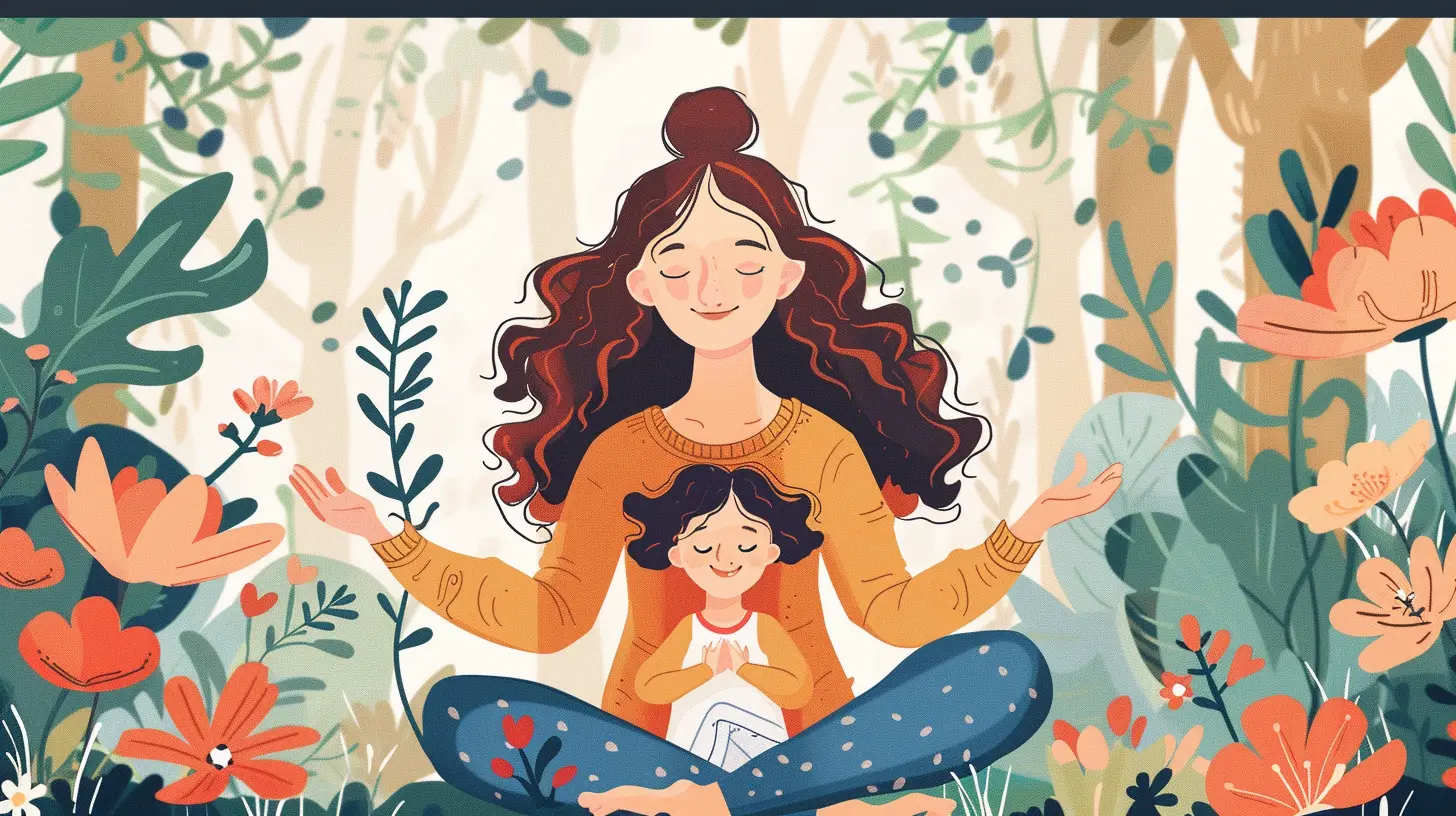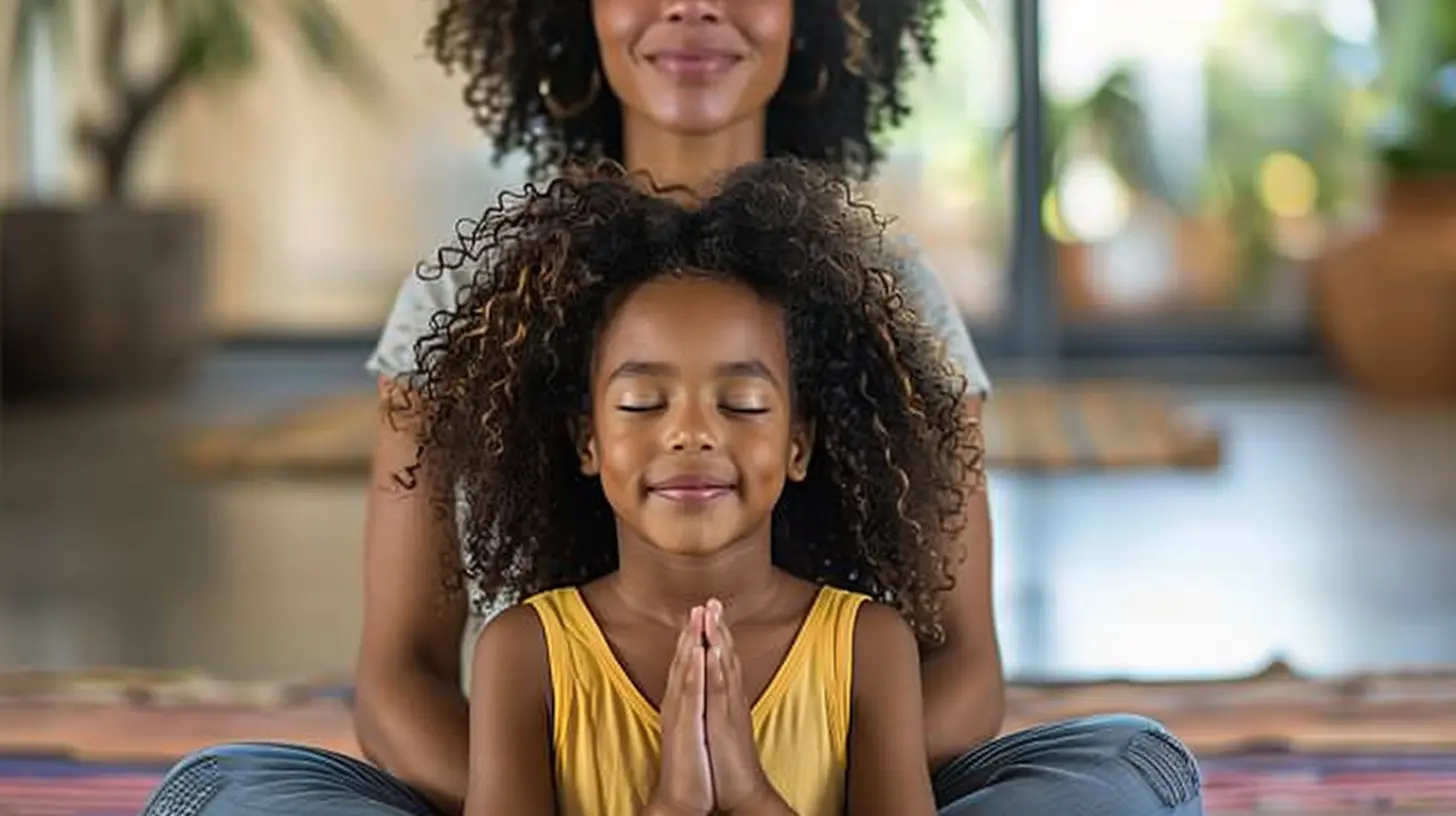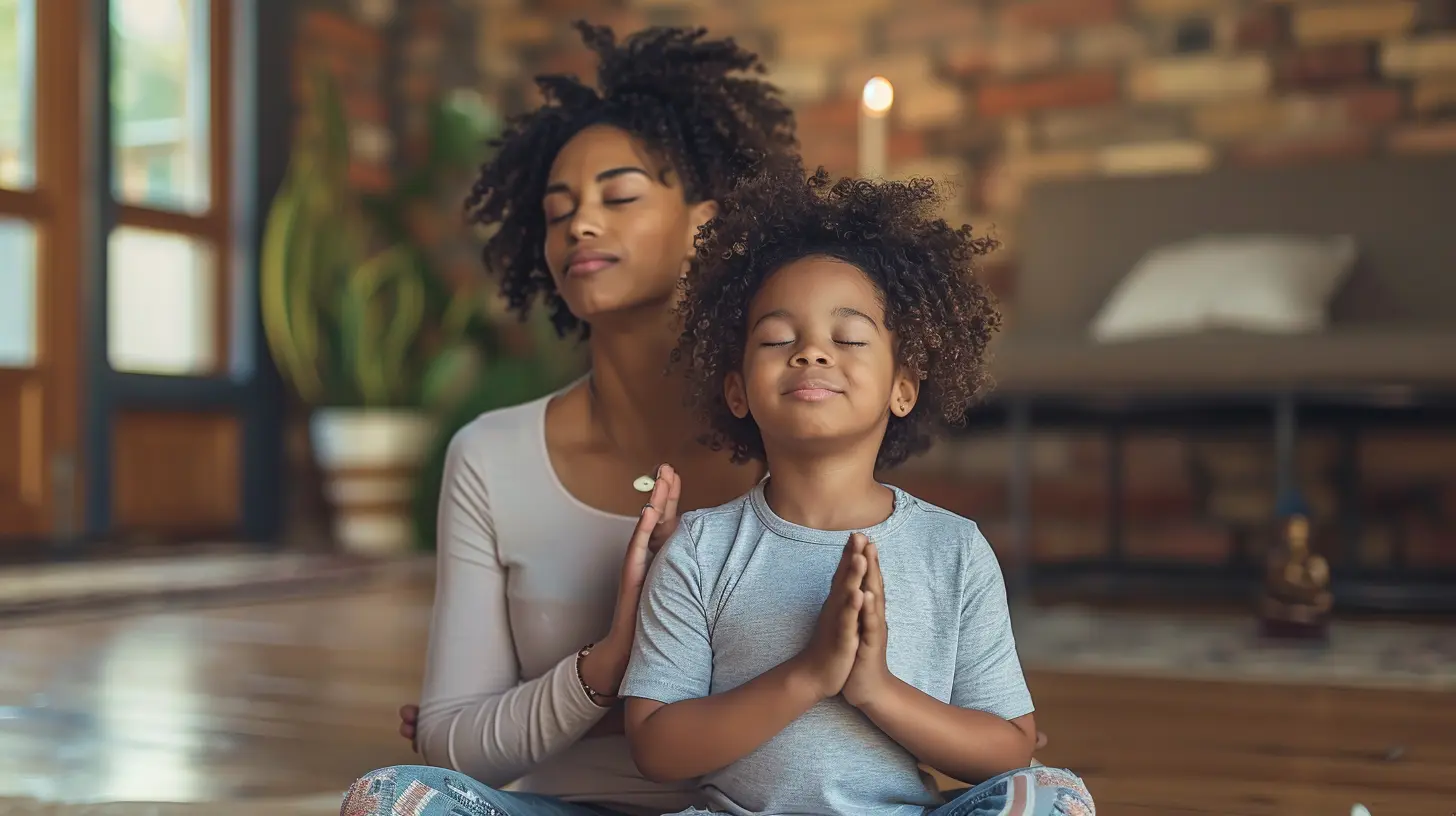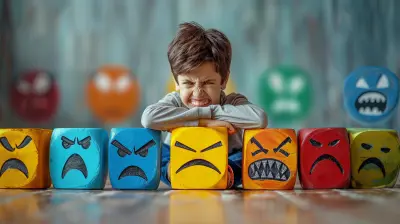How Practicing Gratitude Can Improve Your Parenting Mood
3 July 2025
Parenting is tough. Let’s just get that out in the open. It’s a 24/7 job with no clock-out time, no sick leave, and the boss (your child) can be a little unpredictable. Sound familiar?
Whether you're knee-deep in diapers or navigating teenage mood swings, staying positive and patient can feel like pushing a stroller uphill... in a thunderstorm... with one wheel missing. But there’s one simple habit that can seriously help—practicing gratitude.
Now, I know what you're thinking: “How is saying thank you going to stop my toddler from melting down in the middle of Target?” Well, stick with me, because gratitude isn’t just fluffy feel-good stuff—it’s a mindset shift that can change how you parent and how you feel while doing it.
Let’s dig in.
What Is Gratitude (Really)?
Before we talk about how it can help your parenting mood, let’s define what gratitude is—and what it’s not.Gratitude isn’t about pretending everything is perfect. It’s not forcing a smile or ignoring your struggles. It’s about acknowledging the good—even the teeny, tiny bits of it—despite the chaos.
Think of gratitude like a flashlight. When things get dark (and parenting has its fair share of dark moments), flipping on that gratitude switch helps you focus on what is working. Suddenly, you’re not stumbling through the mess alone—you see the small wins, the warm hugs, the tiny hands reaching for yours.
Sounds powerful, right?
The Link Between Gratitude and Mood
Let’s talk science for a second (don’t worry, I’ll keep it simple).Practicing gratitude has been shown to:
- Boost dopamine and serotonin—those happy brain chemicals.
- Improve sleep (and every parent needs more of that).
- Lower stress levels.
- Reduce symptoms of anxiety and depression.
So when you’re feeling overwhelmed, and let’s face it—that’s often—gratitude is like a mental reset button. It calms the storm swirling in your brain and makes space for clarity, patience, and even joy.
In short, more gratitude = better mood = better parenting.
Why Your Mood Matters When You’re a Parent
Ever noticed how your mood often sets the tone for your whole household?If you’re snappy, the kids go on high alert. If you’re calm, it trickles down like magic. Children are like mood sponges—they absorb everything.
Your emotional state becomes their environment. So, taking care of your mood isn’t selfish—it’s essential. When you practice gratitude regularly, you’re not just helping yourself—you’re creating a more peaceful, positive space for your family.
And when your mood is in the right place, things like tantrums, sibling fights, and bedtime routines become just a little bit easier to handle.
Okay, But How Do I Actually Practice Gratitude?
Great question.You don’t need a gratitude journal the size of a novel or hours of meditation (though if that’s your jam, go for it!). Practicing gratitude can be simple, quick, and woven into your daily routine.
Here are some easy ways to get started:
1. 3 Things a Day Rule
Every day—morning, midday, or before bed—think of three things you’re grateful for.They don’t have to be big. In fact, it’s better when they’re not.
- “I’m grateful my toddler ate broccoli without a bribe.”
- “I’m thankful for that hot shower I finally took.”
- “I appreciate my partner letting me nap for 20 whole minutes.”
It’s all about training your brain to look for the good guys in a day full of little battles.
2. Gratitude Jar With the Kids
This one’s fun and gets the little ones involved.Keep a jar in your kitchen and a stack of sticky notes or scraps of paper. Every evening, everyone adds one thing they were thankful for that day.
It could be as simple as, “I’m glad we had pancakes,” or “Mom didn’t yell today” (hey, we’ve all been there).
When you're having a rough day, pull out a few and read them. Instant mood booster.
3. Say It Out Loud
Don’t keep your grateful thoughts to yourself. Tell your kids what you appreciate—about them, your day, your life.- “I loved how you helped your brother clean up his toys.”
- “I’m really happy we got to spend time reading together.”
- “I’m thankful for your laugh—it makes me smile every time.”
When you speak it out loud, it sinks in deeper. Plus, you’re modeling gratitude for your kids. It’s a win-win.
4. Flip The Script
Next time you're knee-deep in a parenting disaster, try finding one silver lining.Yes, the baby woke you up five times last night. But hey, you got extra snuggles.
Your teen rolled their eyes for the 300th time today… but they’re growing into their own person, right?
It’s not about ignoring the tough stuff. It’s about choosing your focus. Shift the spotlight.
Real-Life Examples of Gratitude in Action
Still not convinced this works? Let me share a few real stories.Sarah, Mom of Two:
> “My mornings used to be a mess. Crying kids, spilled coffee, yelling… Just chaos. I started writing down one thing I was grateful for each morning—even if it was just, ‘I have coffee.’ It made a difference. I felt more grounded. I yelled less. Didn’t make mornings perfect, but it made them survivable.”James, Single Dad:
> “I was exhausted. Working two jobs, raising my daughter solo, and feeling like I was failing. A friend suggested texting one thing I was thankful for every day. I started doing it. Sometimes I’d just say, ‘Her smile,’ or ‘We made it.’ It kept me going. It reminded me that even in struggle, there was love.”Nina, Mom of a Teen:
> “Our relationship was strained. I felt like we were always fighting. I started pointing out the good instead of just nagging her. Saying, ‘Thanks for unloading the dishwasher’ instead of ‘Finally, you listened.’ Over time, we both softened. Gratitude opened a door.”The Ripple Effect
What starts as a personal gratitude habit quickly spreads.Your kids see you noticing the good, speaking kindly, taking moments to smile. Eventually, they start doing the same.
Gratitude teaches empathy. It builds resilience. It creates stronger family bonds.
It’s like planting tiny seeds of peace and connection—and watching them grow.
When Gratitude Feels Hard
Let’s be honest. Some days are just plain awful.You’re exhausted. The house is a mess. You lost your temper. Gratitude feels like a cruel joke.
That’s okay.
On those days, start small. Take a deep breath. Find just one thing.
You're still here. You’re still trying. That’s enough.
Remember: gratitude isn’t about perfection—it’s about perspective.
Final Thoughts
Parenting isn’t neat or easy. It’s messy, emotional, unpredictable—basically, a beautiful disaster.But gratitude? That’s your anchor.
It’s your way of saying, “Yes, things are hard… but not hopeless.” It reminds you of your why. It steadies your heart. It softens your edges.
And honestly? A little gratitude goes a long way in turning surviving into thriving.
So next time your toddler dumps cereal on the carpet, or your teenager slams their door again, pause. Take a breath. Find one thing—even if it’s just, “At least the Wi-Fi’s working.”
You’ve got this.
all images in this post were generated using AI tools
Category:
Self Care For ParentsAuthor:

Zelda Gill
Discussion
rate this article
2 comments
Jude Warner
Gratitude: Parenting's secret mood booster!
November 20, 2025 at 6:03 AM

Zelda Gill
Absolutely! Gratitude can transform our perspective, enhancing our patience and joy in parenting. It's a simple yet powerful tool for boosting our mood!
Georgina Ward
Gratitude shifts our perspective, allowing us to see parenting as a privilege rather than a chore, fostering joy and connection in our daily moments.
July 9, 2025 at 2:37 AM

Zelda Gill
Absolutely! Gratitude truly transforms our view of parenting, helping us cherish each moment and strengthen our bonds with our children.


